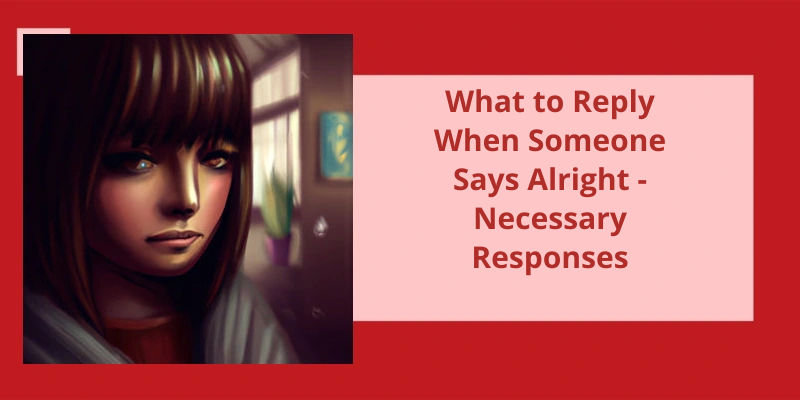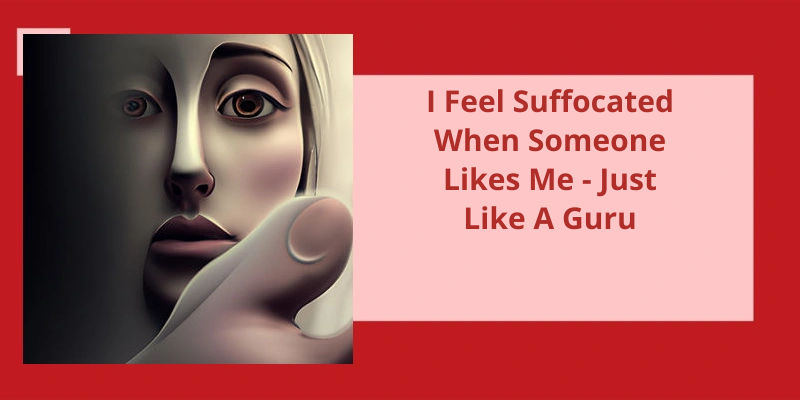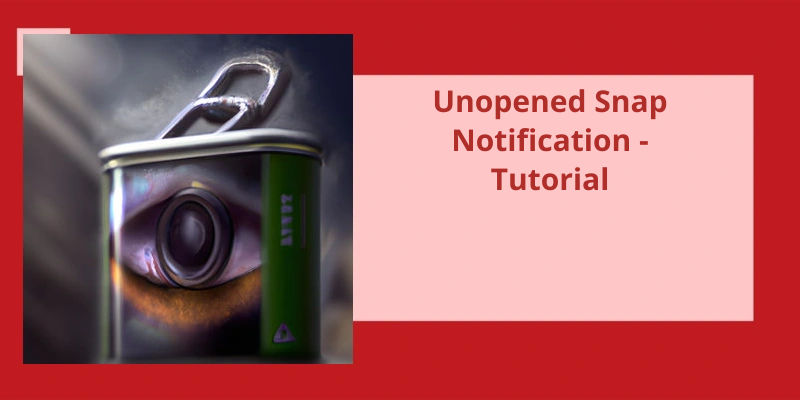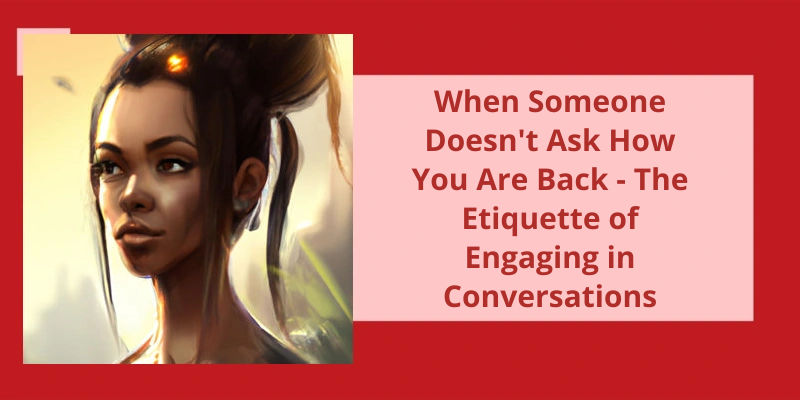When engaging in a conversation with someone, it’s common to encounter different phrases that can be confusing. One such example is when someone says "alright", especially in response to a statement or a question. While it may seem like a simple acknowledgement, there’s often a need to respond in a way that acknowledges the person's statement and keeps the conversation flowing. Some people use "yes/no thanks. how are you?" as a reply, while others come up with different responses altogether. However, it’s worth noting that "alright" could be seen as a casual and abbreviated way of saying "hello, how are you?" and thus, can be considered as an opening for further conversation. Therefore, it’s important to choose a reply that isn’t only polite but also conducive to a fruitful exchange.
What Does It Mean When Someone Responds With Alright?
However, the meaning behind the word “alright” can vary depending on the context in which it’s used. For example, if a friend cancels plans and simply responds with “alright”, it can imply a sense of disappointment or annoyance. On the other hand, if a teacher or boss responds with “alright”, it can indicate a sense of confirmation or approval.
For instance, if someone asks for a favor and the response is “alright”, it can suggest a feeling of resentment or unwillingness to help. Likewise, if someone asks how a task was completed and the response is simply “alright”, it can come across as dismissive or uninterested.
It’s important to consider the tone and body language when someone responds with “alright”. If they seem enthusiastic and engaged, then it’s likely that they’re genuinely okay with something. However, if they appear disinterested or distracted, then it’s possible that they aren’t completely on board with what’s being discussed.
Regardless of the context, it’s always a good idea to follow up with additional questions or comments to gain a better understanding of what the other person is thinking or feeling. It shows that you’re actively engaged in the conversation and willing to listen and respond accordingly.
It can serve as a greeting, confirmation, disappointment, or even a passive-aggressive response. Always pay attention to the cues around the word to understand what someone truly means when they respond with “alright”.
The Origins and History of the Word “Alright”
“Alright” is a variation of the word “all right”, which has been in use since the 18th century. It’s origins are unclear, although it’s believed to have originated from the phrase “quite right,” which was commonly used in the 19th century. The word “alright” became more popular in the 20th century, and it’s now commonly used as an informal way of saying “okay” or “fine.” Despite it’s widespread use, “alright” is still considered by some to be incorrect grammar and isn’t accepted in formal writing.
Now that we know when to use “alright” and “okay,” let’s explore the reasons why some people might find answering with just one word to be rude. It’s important to be aware of social cues and understand when a more detailed response is appropriate. Let’s delve deeper into this topic.
Is Answering Alright Rude?
When it comes to answering with “alright,” some people may view it as rude, while others may not mind. It ultimately depends on the context and the relationship between the people involved in the conversation. If youre speaking with someone you don’t know well or in a formal setting, using “alright” is perfectly acceptable. It conveys a level of politeness and professionalism that’s expected in those situations.
This shows that youre comfortable with the person youre speaking with and that you don’t need to be overly formal. It can also help to put the other person at ease and make the conversation feel more natural.
It’s important to remember that using the correct level of formality is crucial in many situations. In some cultures, for example, using the wrong form of address or greeting can be viewed as disrespectful or even offensive. Even in more casual settings, being overly familiar or using slang may be inappropriate depending on the people and the situation.
Ultimately, the key is to be aware of the context and the people involved in the conversation. This shows that youre respectful and considerate, and it can help to avoid any potential misunderstandings or offense.
Choosing the appropriate greeting or response shows that youre considerate and respectful, and it can help to make the conversation more pleasant and productive for everyone involved. By paying attention to these small details, you can improve your communication skills and build stronger relationships with those around you.
Source: Is it rude to respond with ‘Alright’ when someone says …
However, the use of the word “alright” in texts or any form of written communication has sparked debates among grammar enthusiasts and language purists. While some may see it as a sign of informality, others argue that language is constantly evolving, and the acceptance of “alright” as a legitimate word is simply part of it’s evolution. Regardless of where you stand on the issue, it’s essential to understand the proper usage of this word, particularly when it comes to formal writing.
When Someone Says Alright in a Text?
As it’s considered informal.
The use of “alright” also has different connotations in different contexts. For example, it can be used to signal the end of a conversation: “Alright, Ill talk to you later.”. Similarly, it can be used to indicate a sense of hesitation or uncertainty: “Im not sure if I can make it to the party tonight, but Ill try to be there, alright?”
While it’s true that “alright” is becoming more widely accepted as a valid spelling, it may still be best to stick with the more traditional “all right” in formal or professional situations.
Ultimately, the use of “alright” is another example of how language evolves over time. While it may not be considered “correct” by some, it’s widespread use in informal communication suggests that it’s become a part of our lexicon.
Whether it’s used to signal agreement, hesitation, or simply as a casual sign-off, it’s important to consider the audience and situation before using this word.
The Origins and History of the Word “Alright”
The word “alright” originated in the 18th century as a casual, colloquial variation of “all right.” It gained popularity in American English in the 20th century, despite some criticism from language purists who preferred the two-word version. Today, “alright” is widely accepted and commonly used in both casual and formal settings.
Effective communication is an essential aspect of building relationships, and one way to achieve this is through proper responses during conversations. Whether in a formal or informal setting, it’s vital to choose the right words to convey your message clearly. While “alright” or “OK” might be the most common response, there are several other alternatives to use instead. In this article, we share some of the best replacements for “OK” that you can use to improve your communication skills.
What Can I Reply Instead of Alright?
As social creatures, we constantly engage in conversations with those around us. However, sometimes, we end up relying on a select few responses to carry the conversation forward. One such response is “alright.”. While it might seem harmless, the overuse of this response can lead to dull and uninteresting conversations.
Thankfully, there are many good replacements for “alright” that can add flavor to your conversations. For instance, saying “yep” can convey a positive and enthusiastic response. Similarly, “fine” can indicate that you’ve no objections but are neither excited nor enthusiastic. In contrast, “no problem” adds reassurance that whatever was asked of you isn’t an issue.
When someone presents an opinion, responding with “I agree” can indicate that you support their perspective. Similarly, saying “acknowledged” conveys that you’ve heard and taken note of what they said. “I approve” can express your agreement with someones actions or decisions.
To show your compliance, you can respond with “very well” or “yes.”. If you want to add more excitement, “cool” or “sounds good to me” might do the trick. When someone asks a question, “certainly” can show your willingness to oblige. Additionally, “without a doubt” and “no doubt” can convey certainty and confidence.
In professional settings, “no problem” and “sure” can indicate your readiness to assist without committing to anything specific. “Affirmative” is another professional alternative that can highlight your competence and ensure clear communication. Lastly, when someone asks for an opinion or insight, “definitely” or “indeed” can show that you’re thoughtful and intentional with your responses.
Instead of relying on a single response, it’s always good to have various alternatives that can add more depth and flavor to your conversations. By using these alternatives, you can help keep your conversations engaging and leave a lasting impression on those around you.
When someone asks you if you’re alright, it’s common to simply respond with “I’m fine.” However, sometimes the situation might call for a different response. Depending on who’s asking and the context of the conversation, there are a variety of ways to answer this question. Here are a few options to consider.
What to Say After Are You Alright?
As humans, we often default to the response of “Im fine” when asked if were alright. While this may seem like a simple and polite response, it can also be viewed as dismissive or unhelpful in certain situations. It’s important to remember that “Im fine” isn’t always the best or most honest answer.
Instead of simply saying “Im fine,” try to think about how youre actually feeling and communicate that to the person asking. If youre feeling tired or overwhelmed, say so. If youre struggling with a personal issue or experiencing physical pain, be honest about that. By opening up and sharing your true feelings, you allow the other person to understand and support you.
Another way to respond to “are you alright?” is to ask for help if you need it. Often times, we don’t want to burden others with our problems or seem weak by asking for assistance. However, it’s important to remember that it’s okay to ask for help when you need it. Whether it’s a small favor or a more significant request, don’t be afraid to reach out for support.
If youre struggling to find the right words, take a moment to pause and collect your thoughts. You can say something like “Im not sure how to answer that right now, but thank you for asking.”. This shows that you appreciate the concern and care of the person asking, but you need some time to gather your thoughts and feelings.
If the person asking is a close friend or family member, you may feel more comfortable opening up and sharing your true feelings. However, if it’s a stranger or acquaintance, you may want to keep your response more brief and polite.
Overall, the most important thing to remember is to be honest and authentic when responding to “are you alright?”. Whether it’s a simple “yes, Im doing well” or a more in-depth explanation of your emotions, being genuine and open allows for stronger and more meaningful connections with those around you.
Now that we’ve covered some common adverbs for politely saying “alright,” let’s explore some other phrases and expressions that can be used in various situations. It’s important to choose the right words based on the context and your relationship with the person you’re speaking to, so we’ll provide some examples and explanations to help you communicate effectively and respectfully.
How Do You Say Alright Politely?
When it comes to expressing agreement or acknowledgement in a polite manner, there are several different phrases and words that can be used. One common phrase that many people use is “alright,” which is an adverb that can be used to express agreement or acceptance in a polite way. For example, if someone asks if youre ready to go, you might respond by saying “alright, lets go.”
This word is often used in response to a request or suggestion, indicating that you agree or are willing to comply. For instance, if someone asks if you’d be willing to help with a project, you might respond by saying “okay, I can help out.”
For example, you might say “fine” or “good” to indicate that you agree with what someone is saying or suggesting. These words are often used in a reassuring tone to show that you’re on board with the conversation.
If you want to express agreement or acknowledgement in an especially polite way, you might consider using an adverb such as “nicely” or “well.”. These words can be used to show that you appreciate what someone is saying, or that you’re willing to comply with their request. For example, if someone suggests a certain course of action, you might respond by saying “well, I think that could work.”
Of course, it’s important to remember that the tone and context in which these words are used can greatly affect their meaning. While words like “alright” and “okay” can be polite and reassuring when used appropriately, they can also come across as indifferent or dismissive if not used in the right way. Similarly, adverbs like “nicely” and “well” can be polite and respectful when used in the right context, but can also sound condescending or insincere if not used properly.
Conclusion
In conclusion, the response to "alright" may seem simple, but there’s actually more to it than meets the eye. Responding with "yes/no thanks, how are you?" not only acknowledges the greeting but also shows a genuine interest in the other person's well-being. It's all about reading the situation and responding appropriately. As language and communication continue to evolve, it's important to stay open-minded and adaptable.






